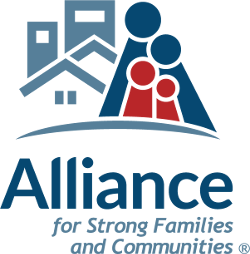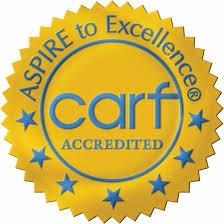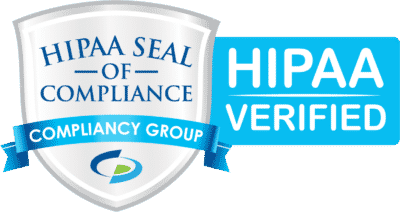Parenting in the early years can feel like a rollercoaster—full of joy, but also questions, doubts, and challenges. For many caregivers, especially first-time parents, it’s easy to feel overwhelmed. But what if someone could meet you right where you are, at home, and offer personalized guidance, encouragement, and support?
That’s exactly what early childhood home visitation programs are designed to do.
These programs are built around one simple truth: confident parents raise confident children. Through regular home visits, trained professionals help parents build essential skills, navigate developmental milestones, and create nurturing environments for their little ones. This blog explores how home visiting programs for parents work, why they matter, and how they shape the future of families and communities alike.
What Is Early Childhood Home Visitation?
Early childhood home visitation is a voluntary service in which trained professionals, called home visitors, partner with families to support healthy child development and strengthen parenting skills. These visits typically begin during pregnancy or shortly after birth and continue through the early years of a child’s life.
Unlike formal classrooms or medical settings, the visits take place in the family’s home—making the support more personal, practical, and tailored to real-life routines and environments.
Common Goals of Home Visiting Programs:
- Improve early childhood development
- Support maternal and infant health
- Enhance parent-child bonding
- Reduce child abuse and neglect risks
- Promote school readiness
- Connect families with community resources
Who Are Home Visitors?
Home visitors are trained professionals—often nurses, social workers, or early childhood educators—who offer hands-on, judgment-free parenting support. Their role is not to inspect or critique, but to empower.
They help parents build confidence in:
- Understanding child development
- Responding to behavioral cues
- Creating a safe and enriching home environment
- Managing stress and mental health
- Accessing healthcare and early intervention resources
Most importantly, they provide a consistent, trusted presence during what can be one of the most emotionally demanding times in a parent’s life.
How Home Visiting Programs for Parents Work
No two families are alike—and that’s what makes these programs so impactful. Each visit is customized based on the family’s needs, cultural background, and goals. Some programs follow evidence-based models like Parents as Teachers or Healthy Families America, ensuring parents receive proven strategies and resources.
Here’s what a typical home visit might include:
- Developmental screenings and age-appropriate activities
- Tips for healthy sleep, nutrition, and routines
- Guidance on positive discipline
- Emotional support and mental health check-ins
- Help setting personal and parenting goals
- Referrals to local services like childcare, healthcare, or financial assistance
Visits are typically scheduled weekly or bi-weekly, with flexibility based on the family’s preferences.
Aspects These Visits Influence: A Ripple Effect Beyond Parenting
Early childhood home visits aren’t just about parenting tips—they create ripples that impact a child’s entire ecosystem, from health to lifelong learning. Here’s how:
1. Health & Safety at Home
Home visitors play a critical role in promoting both maternal and child health. They ensure families stay on track with prenatal care, immunizations, and wellness checkups. Parents are also taught safe sleep practices, nutrition basics, and how to reduce household hazards—like preventing falls or poisoning risks. Many visitors are also trained in lactation support, helping new moms with breastfeeding challenges.
2. Emotional Support & Mental Health
The early years can be isolating and overwhelming—especially for new or young parents. Home visitors provide consistent emotional encouragement while also screening for postpartum depression, anxiety, or domestic violence. They offer a safe space to talk and connect families with mental health professionals when needed, building resilience for both parent and child.
3. School Readiness & Child Development
One of the most powerful benefits is how these visits nurture school readiness. Parents learn to engage their child through play, reading, and daily routines that boost cognitive, language, and social-emotional skills. Early screenings help catch developmental delays, and families are guided to early intervention services if needed.
4. Stronger Parent-Child Relationships
Home visits help parents better understand their child’s cues and needs—laying the groundwork for secure attachment and trust. Visitors model positive discipline strategies and support responsive caregiving. This not only builds confidence in the caregiver but also creates a more emotionally stable home environment for the child.
5. Stability Through Connection
Whether it’s help with housing, job training, childcare, or legal support—home visitors serve as connectors. They guide families to local services that build long-term stability and self-sufficiency. The result? Families are not just surviving—but building a future with more confidence and access to opportunity.
Why It’s Especially Important Today
In today’s fast-paced, often isolating world, families face unprecedented levels of stress. Rising costs of childcare, mental health challenges, and social fragmentation have made parenting even harder.
Home visiting programs for parents offer a lifeline—especially to:
- First-time parents
- Single parents
- Low-income families
- Families experiencing trauma or instability
With early intervention, families can break cycles of poverty, abuse, or poor health—and replace them with cycles of resilience, growth, and connection.
Common Misconceptions and Myth Busting
Despite the success of these programs, home visitation still suffers from a few stubborn myths. Let’s clear them up:
Myth 1: “Home visiting is only for neglectful or ‘bad’ parents.”
Truth: Home visitation is for any parent who wants to be the best version of themselves for their child. It’s a sign of strength—not failure—to ask for help. Most families in these programs are loving, motivated caregivers who simply need extra support navigating parenthood.
Myth 2: “It’s a government surveillance program.”
Truth: Participation is completely voluntary, and the visitor is there to support, not judge. They don’t report families unless there’s a serious safety concern—just like any educator or healthcare provider would be mandated to.
Myth 3: “All programs are the same.”
Truth: There are many evidence-based models (like Nurse-Family Partnership, Healthy Families America, Parents as Teachers), each tailored to different needs—first-time moms, low-income families, etc. Services are customized and personal.
Myth 4: “Home visiting is just babysitting or light parenting advice.”
Truth: These visits are guided by science, data, and professional training. Home visitors use formal frameworks, conduct developmental screenings, and connect families to services. This is structured intervention—not casual chatting.
Connecting to Broader Community Support
At The Up Center, our approach to Early Childhood Education goes beyond the classroom. We understand that parents are a child’s first and most important teachers. That’s why we offer parenting education and support designed to strengthen families from the ground up.
Through our Parenting Education & Support programs, families gain access to tools, insights, and one-on-one coaching tailored to their needs. Our home visiting services are grounded in empathy, research, and a commitment to helping every child reach their potential—by first supporting the adults in their lives.
Final Thoughts: Confidence Comes with Connection
Parenting doesn’t come with a manual—but with the right support, it can come with confidence.
Early childhood home visitation is not about telling parents what to do—it’s about walking with them, celebrating wins, and navigating challenges side by side. Whether you’re a new parent seeking reassurance or someone looking to give your child the best possible start, home visitor parenting support can be a game changer.
To learn more about our local efforts in early childhood development and family wellness, or to explore how our home visiting programs can help you or someone you love, visit The Up Center.














